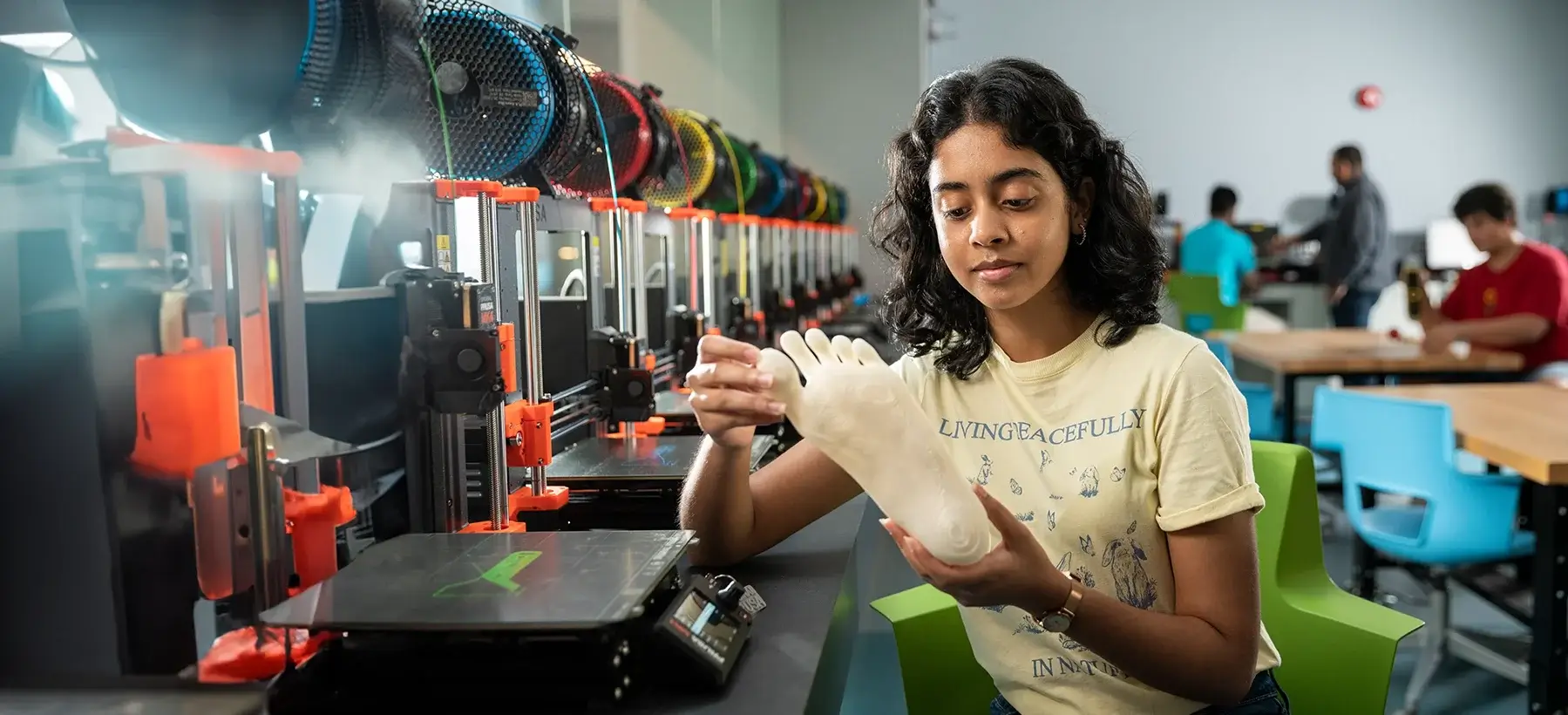Your Classes
What You’ll Take:
- Health Solutions Design Projects I: Introduction to Engineering Fundamentals and Design (IBEHS 1P10 A/B)
- General Chemistry for Engineering I (CHEM 1E03)
- Entrepreneurship in Biomedical Innovation: From Bench to Market (IBEHS 1EP6 A/B)
- Engineering Mathematics I (MATH 1ZA3)
- Engineering Mathematics II-A (MATH 1ZB3)
- Engineering Mathematics II-B (MATH 1ZC3)
- Introductory Mechanics (PHYSICS 1D03)
- Waves, Electricity and Magnetic Fields (PHYSICS 1E03)
- Biosafety Training (BIOSAFE 1BS0)
- Introduction to Health and Safety (WHMIS 1A00)
- 3 units of complementary electives
Learn more about the iBioMed I requirements here.
In second year, students will pursue more specialized courses of study in either the Bachelor of Engineering and Biomedical Engineering (B.Eng. BME.) degree or the Honours Bachelor of Health Sciences in Health, Engineering Science and Entrepreneurship (B.H.Sc. HESE) degree.
B.Eng.BME
Students in the B.Eng.BME degree cover fundamental skills and techniques in both biomedical engineering and a chosen core discipline. There are eight core disciplines to choose from, including Civil Engineering, Chemical Engineering, Electrical Engineering, Engineering Physics, Materials Engineering, Mechanical Engineering, Mechatronics, and Software Engineering. Admissions into one of these engineering disciplines will be based on first-year academic performance and the availability of space in the discipline.
B.H.Sc. HESE
Honours Bachelor of Health Sciences Health Engineering Science and Entrepreneurship (B.H.Sc. HESE) integrates engineering, health sciences and entrepreneurship, creating a hybrid graduate that interacts with clinicians, researchers and patients. Health and Engineering Entrepreneurship courses from level two to level five integrate business and engineering concepts including; organizational behaviour, leadership, finance and marketing, discovery, validation, design thinking, and more. Students will work in groups to create value from problems in the health and engineering disciplines by learning how to develop and market a concept.
Level II Program Selection:
As enrolment is limited in each degree options, where there is more demand than spaces, competition will be based on first-year academic achievement.
Bachelor of Engineering & Biomedical Engineering – 105 spaces
Bachelor of Health Sciences in Health, Engineering Science and Entrepreneurship – 50 spaces





